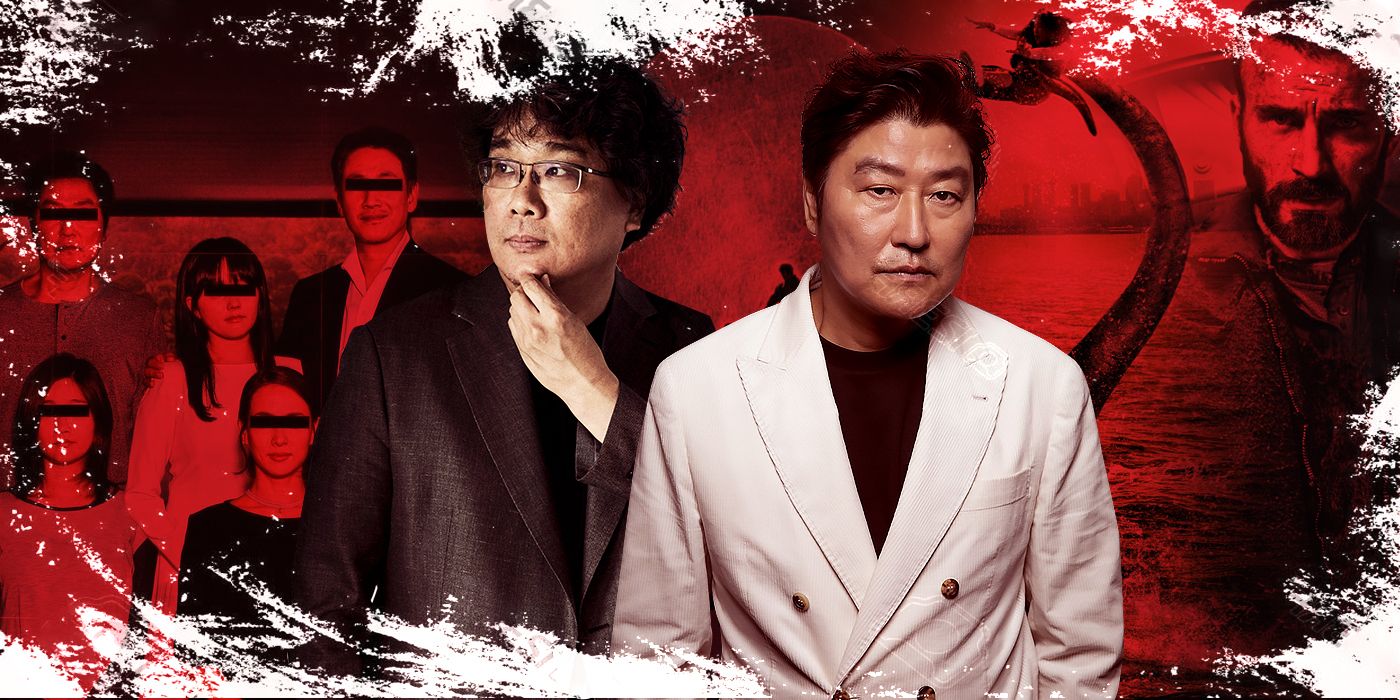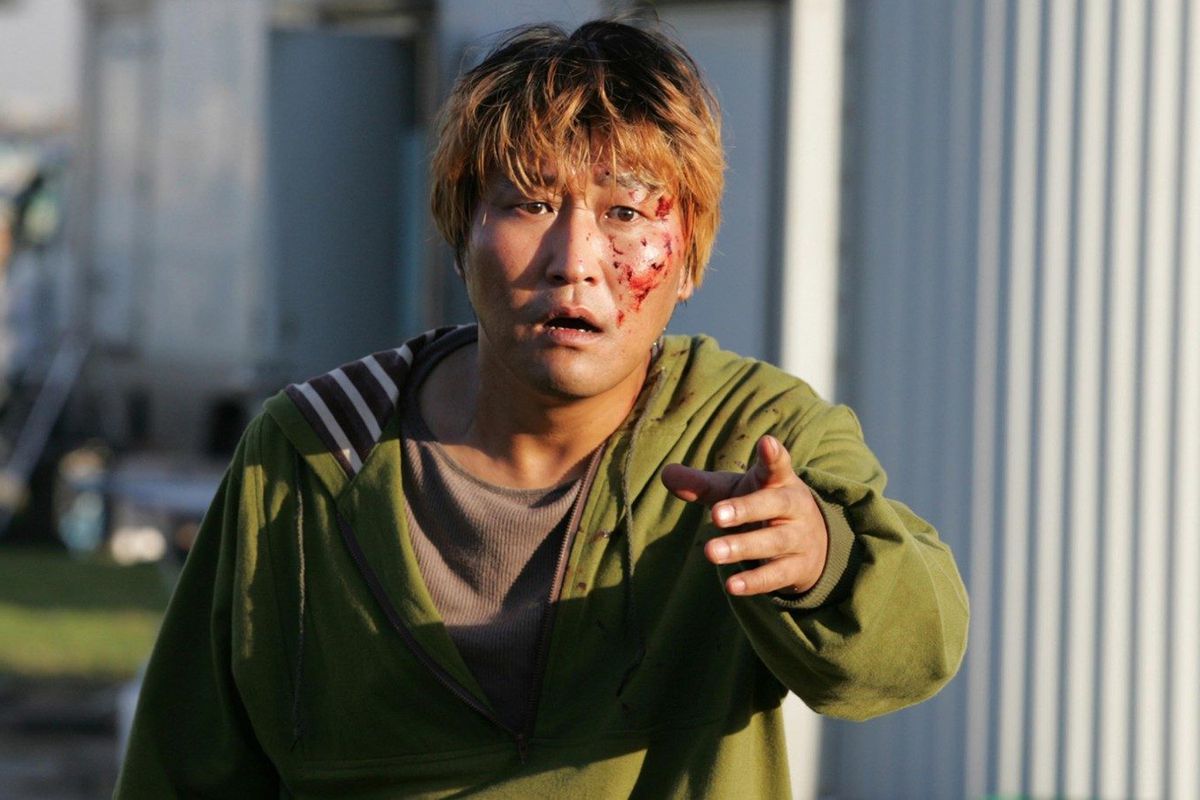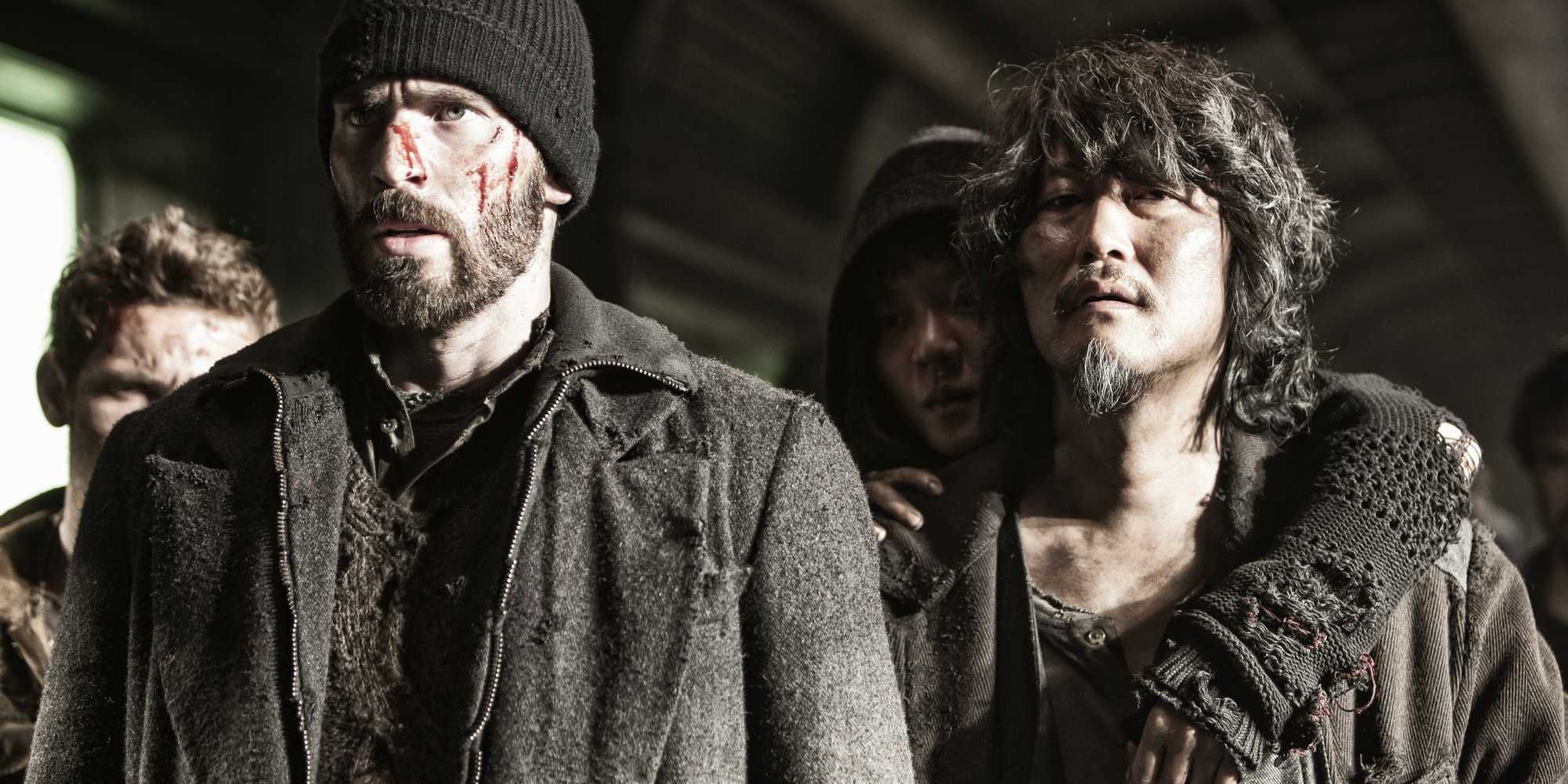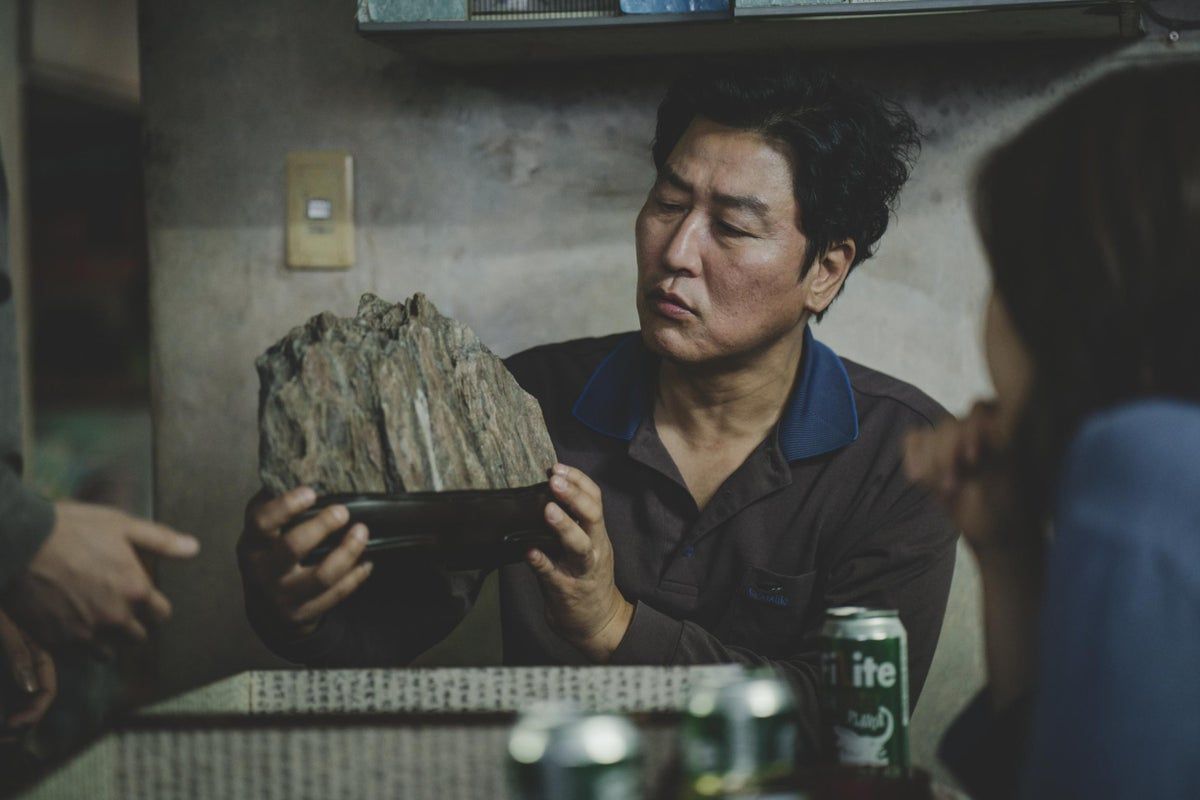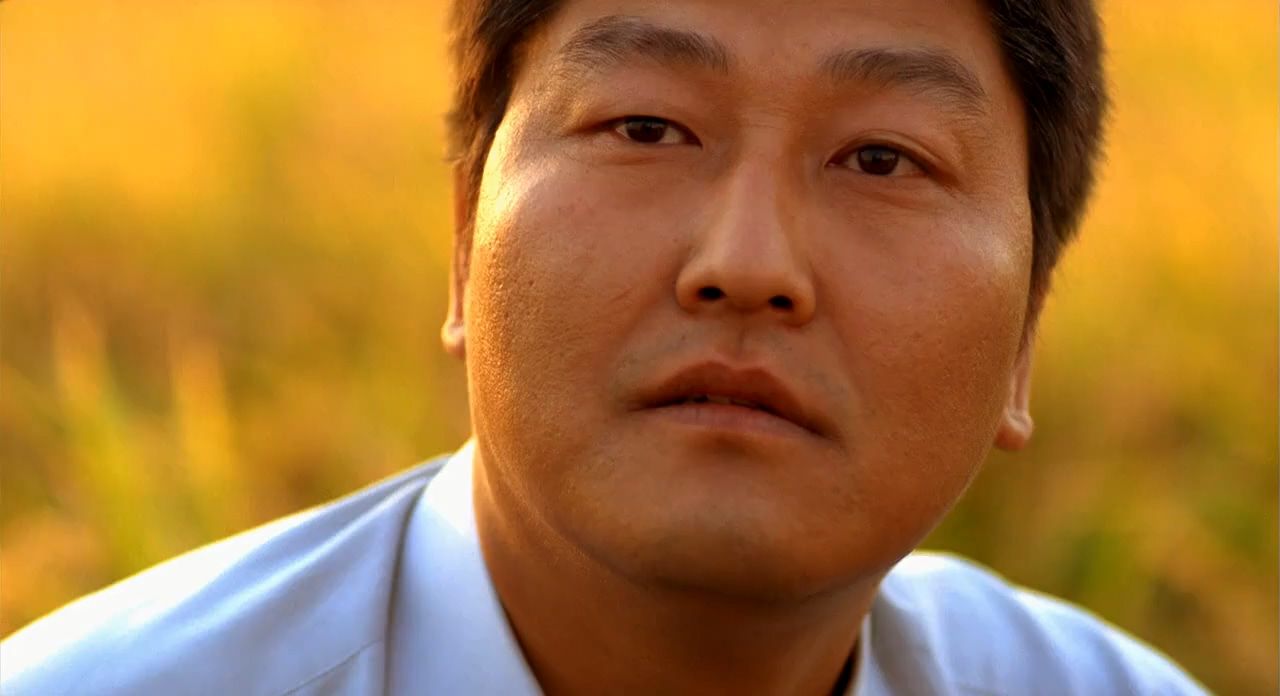Everyone around the world seems to know Bong Joon Ho’s name now thanks to the success of his 2019 film Parasite, which won Best International Feature Film, Best Original Screenplay, Best Director, and Best Picture at the Academy Awards. On top of that, it was also the first foreign-language film to ever win Best Picture, which was certainly a long time coming. Quite the accomplishment, that’s for sure, but Bong has been a monumentally influential director and writer for decades now.
As of 2021, Bong has directed 7 films and written 11, with an HBO show and an animated film in the works. One of South Korea’s most well-respected directors, Bong’s films are noted for using intense, stylish stories to present a critique on different aspects of society, with some more extravagant and fantastical in nature than others. But no matter what each new movie is about, you can be sure that it will be a must-see.
Like other auteur filmmakers such as Martin Scorsese and Tim Burton, Bong also has a tendency to work with the same actors over the course of multiple movies, with a few common collaborators being prominent Korean actors Lee Jung-eun and Byun Hee-bong, as well as Tilda Swinton. But arguably, Bong’s best partnership is with the actor Song Kang-ho, who has starred in four of Bong’s movies and is one of the biggest actors in South Korea. But looking at each of their four works together, which is their best collaboration?
Note: This only includes movies for which Bong directed, as the 2005 movie Antarctica Journal was written by Bong and stars Song, but it is not included here.
4. The Host (2006), Park Gang-du
To start things off, I think that it should be said that every movie on this list is fantastic, and it was very difficult to rank them. But for number four, it’s 2006’s The Host, the third feature-length film Bong directed in his career. At the surface, The Host feels like a straightforward monster movie, and in a way, it is. But as you probably know if you’ve seen any of Bong’s films, there’s always a bigger, more worldly story underneath. In the case of The Host, the film is a satire on pollution and U.S. intervention abroad, directly referencing an incident in which a Korean mortician working in Seoul for a U.S. military facility stated that he was told to dump a large amount of formaldehyde down the drain and into the water supply, in complete disregard for the environment. In The Host, something similar happens, resulting in a fish mutating into a huge beast that comes out of the Han River and starts eating people. While the movie is definitely critical of the U.S., don’t worry, Bong’s story also criticizes the apathetic bureaucracy of South Korea, among other things.
At this point in Song’s career, he was already a prominent actor, gaining critical acclaim for his roles in both Joint Security and Sympathy for Mr. Vengeance, both directed by Park Chan-wook. He also wowed audiences only a few years earlier in Bong’s previous film, Memories of Murder (which will appear later on in this list). Taking on the lead role in The Host, Song plays a dim-witted man named Park Gang-du who runs a small stand selling snacks near the river with his father, located right near where the monster first emerges. Bong commonly uses the relationship between a father and daughter, or similar familial relationships, in his movies, and this is evident here, as Gang-du’s love for his young daughter who gets kidnapped by the creature is all that keeps him from succumbing to his cowardly ways and leaving everyone to save himself. A few of Song’s characters in Bong’s films are similarly bumbling and self-seeking, but Song always manages to dig deep and portray such nuance in the character that the audience can’t help but like and root for him, even as he makes multiple ignorant and silly decisions. While The Host is an intelligent and entertaining monster movie, the action scenes and focus on the monster and ensuing chaos takes away from time that Bong would use in other films to further develop Song’s character to new depths.
3. Snowpiercer (2013), Namgoong Minsu
With 2013's Snowpiercer, Song has a slightly smaller role than in The Host, with Chris Evans taking up the lead in the story about a world destroyed by climate change, with the only survivors living on a train constantly circling the globe. But the movie is arguably an ensemble film, and Bong gives equal value to all of the players, as Evans's Curtis organizes a revolt, leading a group from the impoverished back of the train to take over the privileged front.
Song’s character in Snowpiercer is a man named Namgoong Minsu, the person who designed the security technology on the train. Minsu is a contrasting character who holds an opposite, more hopeful view of the future than Curtis, who has a very pessimistic outlook. Minsu, despite being with the train from its initial conception, still manages to believe that the world can recover. He has a strong desire to one day go outside the train, so much so that he allows himself to become addicted to something called "Kronole" so that he can save up some of the combustive material to eventually blow a hole in the train and escape. This hope and personal strength might have to do with the fact that Minsu has a teenage daughter named Yona, played by Ko Asung, also known as Go Ah-sung, who also played Song’s daughter in The Host. Thanks to Minsu’s daughter and Yona’s mother, who is one of the "Frozen Seven," the people who attempted to leave the train in the past but died, Minsu has hope in the planet’s future, while Curtis is only trying to improve life for those on the train. In the end, Curtis and Minsu must sacrifice themself for the next generation, and considering everything happening right now, the movie's message is more relevant now than when the film was first released.
As a movie, Snowpiercer is also more detailed than The Host, with commentary on multiple aspects of society fitting together brilliantly in one movie, like each section of the train. The comical, extreme nature of the story contrasts against the brutal horrors going on in the train, like the man whose arm is frozen off as punishment for rebelling and the children used as slaves to actually move the machinery of the train. Bong doesn’t waste a minute of time or story, and Snowpiercer is representative of Bong’s particular talents that are fully honed in later films.
2. Parasite (2019), Kim Ki-taek
Okay, so I know that most people were probably expecting Parasite to be at the top, right? But hear me out. While Parasite is an impeccable, practically perfect film, the top pick has an emotional impact that makes the story stick with you for years afterward, and with good reason. But before we get to that, it’s important to explain why Parasite is and will continue to be viewed as one of the best films of the 21st century, or all time, depending on who you ask, and Song is a big part of that.
Parasite is a culmination of The Host, Snowpiercer, and Bong’s 2017 film Okja, a showcase of everything the director does best. The film has a meticulous attention to detail, an unforgettable and expansive cast of characters, and a story that constantly twists and turns in ways you don’t expect. The Oscar-winning movie is a stark allegory of inequality, with Song’s character Kim Ki-taek and his family living in a small and dingy basement apartment, while the Park family has a sprawling, immaculate home with multiple levels. In fact, it has more levels than they even know, which is representative of those who have so much wealth that they lose track of what they have.
Because of their long partnership, Bong and Song are able to create an overarching narrative of Song’s characters throughout their movies, which is why there are always similarities and connections between them. In The Host, Snowpiercer, and Parasite, a big part of Song’s characters’ identity is their role as a father and protector, with Bong expanding on that story and adding layers in each subsequent film he makes with the actor. Because of this, Parasite’s Kim is a man filled with resentment and rage at how his life turned out, as well as an intense drive and desperation to improve the lives of himself, his wife, and especially his children, who he hopes will never end up like him. Song’s characters are generally protagonists that have muddled morals and uneven personalities, forcing you to often question the validity of their decisions. This is true with all of the characters in Parasite, which is about how far a family will go to gain wealth and privilege, and then to keep it. But like Snowpiercer, Parasite is an ensemble film. The fact that Song and the other actors’ characters have such depth is a testament to Bong’s skill as a filmmaker and writer, but the number one collaboration of Bong and Song is both men’s character work at its best.
1. Memories of Murder (2003), Detective Park Doo-man
With the Academy Awards and worldwide acclaim that Bong experienced with Parasite in 2019, fans of the film are probably exploring some of Bong’s past work, which will eventually lead them to 2003’s Memories of Murder, Bong’s second film and arguably his most influential work, and his first time working with Song.
While almost all of Bong’s films are based in part on a real story or experience of his, Memories of Murder is based on the play Come to See Me by Kim Kwang-lim, which is in turn based on the serial killings in South Korea that occurred from 1986 to 1991. Song stars in the film as an incapable, ignorant small-town detective who does his best to catch the killer, but it's not enough. Unlike in America, where we have serial killers for every day of the year and more, this was Korea’s first confirmed serial killer, and at the time of making this movie — and until 2019 — the identity of the killer was unknown. In September 2019, police announced that they had done DNA testing again from the case, and a man who was already serving a life sentence for another rape and murder was identified as the culprit behind the older serial killings. But until 2015, Korea had a statute of limitations on murder — if you can believe it — and although it has now been removed, the ruling wasn’t retroactive, so it’s unclear exactly what else can be done. Even watching the movie now, after the man has been identified, that feeling of helplessness is hard to ignore. But imagine watching this at any point over the last 15 or so years, feeling the desperation to know who did it and find them.
In Memories of Murder, Song plays a detective named Park Doo-man who works on the case. Having never investigated a serious crime like this before, he’s rather inept, and makes many assumptions and mistakes in the investigation, while at the time forensic science was almost nonexistent. A more experienced detective from Seoul named Seo Tae-yoon (Kim Sang-kyung) comes to help, and he basically plays the role of the audience, just balking at everything Detective Park is doing. The way Park investigates is very realistic to the actual events and time period, portraying the stereotyping and lack of knowledge about profiling and serial killers that went on in the late ‘80s, along with the police’s forceful coercion of suspects. Bong even somehow twists slapstick comedy to his advantage, adding it into scenes to amplify the horror and sadness of the situation. You can almost feel the killer laughing at the police from right behind them as they continue to ruin their own investigation, missing key information and allowing their own prejudices to cloud their judgment. But somehow through all of this, audiences understand the anxiousness and anguish that Park feels throughout the story, both due to the country’s pressure to solve the case, as well as his own need to find the culprit, as more and more murders are committed. Park can barely be called an antihero in Memories of Murder, but both actor and director so perfectly place the audience in his mind, that viewers can’t deny that they understand why he does what he does, even if they don't agree with it.
Through Bong and Song’s work together on this film, audiences around the world mourn the loss of these women together as well as the detectives’ failings, both due to personal shortcomings and factors of the time period, including intense misogyny and toxic masculinity. At the same time, the movie also recognizes the emotions that detectives working on the case went through, directly seeing the victims’ bodies and failing to close the case, then living with that for years after. In a word, Memories of Murder is haunting, and although the movie came out almost two decades ago, it continues to impact viewers with its evocative storytelling and complex emotional depth. There's a reason people call this film a masterpiece.

